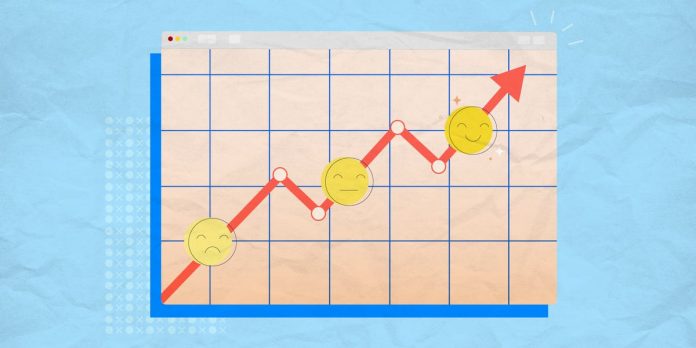A leading-edge research firm focused on digital transformation.
When you buy through our links, Insider may earn an affiliate commission. Learn more.
Over a year ago, I enrolled in Yale’s free (and most popular) online class, The Science of Well-Being. It debunks myths about what we think makes us happy and uses science to help us build healthy habits.
One of the key takeaways is that something positive psychology calls your “flow state” is impactful for well-being, from your search for a good job to finding hobbies that fulfill you.
After taking the course, I eventually felt inspired to start Pilates — and have been doing it for three months straight. Here’s why it’s made me a happier, better person.
“Flow state” is essentially being in the zone. When you’re engrossed in an activity that’s challenging but also doable and engaging (like learning a language or meditating), you are in your flow state.
“Research suggests that flow states feel really good,” said Dr. Laurie Santos, a Yale psychology professor and the creator of the Science of Well-Being course. “They make time pass in an enjoyable but quick way; you’re really present, and there’s lots of research suggesting that anytime we do things where we’re more present, we enjoy that activity more.”
When it comes to happiness, flow states are a great bang for your buck. However, the startup cost is usually higher than it is for passive activities such as scrolling through Twitter. In The Science of Well-Being, Santos addresses how our brain hasn’t evolved to enable happiness: We may crave social media more than new hobbies or exercise that can improve our well-being in the long term.
Learning how important these tough, doable activities are to well-being, I decided to try Pilates, which combines other happiness heavyweights, such as social connection, meditation, and healthy practices.
Over the last three months, I’ve completed 75 Pilates classes, almost all of them in a row.
Taking Pilates classes has been the perfect storm: It regularly gets me into the engrossed concentration of my flow state and relies upon skills that I can improve (and therefore enjoy more deeply) over time.
But what I love most is its overlap with meditation. During Pilates, I spend an hour out of my head. It’s not unusual for me to leave class and realize I haven’t thought about anything besides breathing, stretching, or holding a position the entire time.
The whole process feels similar to savoring, another key aspect of improving well-being. According to Santos, savoring is “the simple act of stepping out of your experience to review it and really appreciate it while it’s happening.” It can boost our mood by increasing our gratitude, by “[making] us thankful for the experiences we’re having as we’re having them.”
I started my “flow state” habit as a generally happy person, but three months after starting Pilates, my happiness feels so much greater and more consistent. (The Science of Well-Being gives you tools to quantify your happiness over time, which can help you track any major improvements).
After Santos’ course, I understood that perfection shouldn’t be the goal of trying an activity — it’s your own concentration and effort that’s the reward. With this mindset, I didn’t feel guilty or bad because I wasn’t good at something in Pilates; I enjoyed trying. Plus, from repeated practice, I gradually got better at it. Being mediocre at something you enjoy is beside the point.
This habit has helped me begin craving flow state activities more often. Right now, I’m on track to take a Pilates anatomy course and eventually hope to get certified to teach Pilates myself.
I haven’t completely cut out the “junk food” activities (as Santos referred to them), like rewatching “The Office” or scrolling through Instagram, but I definitely prioritize more enriching activities than before, from Pilates to reading a captivating novel over the weekend.
Doing Pilates every day doesn’t have to be your flow state activity. It could be anything — reading, writing, learning Spanish, gardening, guitar-playing. Whatever you pick, it’s liberating to let go of perfection and prioritize growth in multiple areas of my life. I’m a much better, happier person because of it.
For more happiness tips, I highly recommend enrolling in Yale’s free (and relatively short) online course.
One of Yale’s most popular classes ever (and a Business Insider favorite), this class debunks some of the most common myths about happiness and teaches you how to authentically improve your well-being.
Sign up for Insider Reviews’ weekly newsletter for more buying advice and great deals.
You can purchase logo and accolade licensing to this story here.
Disclosure: Written and researched by the Insider Reviews team. We highlight products and services you might find interesting. If you buy them, we may get a small share of the revenue from the sale from our partners. We may receive products free of charge from manufacturers to test. This does not drive our decision as to whether or not a product is featured or recommended. We operate independently from our advertising team. We welcome your feedback. Email us at [email protected].






